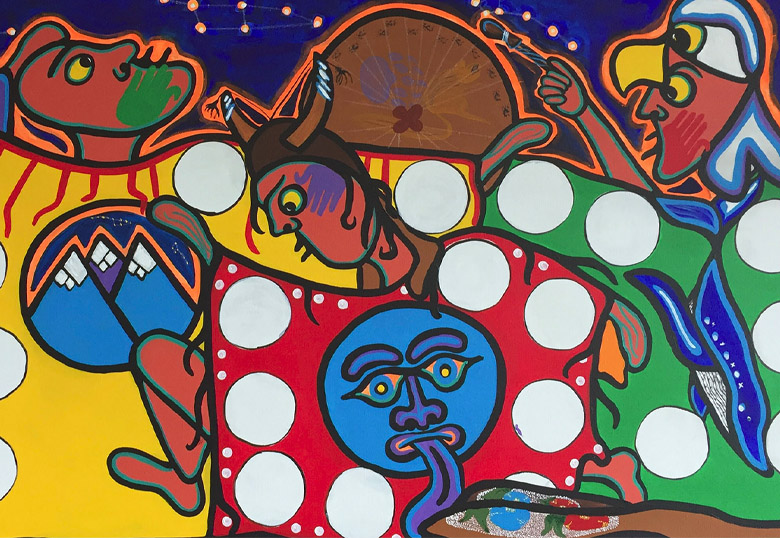A new course offered by the University of Lethbridge, and available to students and community members alike, examines the language around Indigenization and reconciliation and creates a safe space for a conversation sorely needed by all communities.

Conversational Indigenization: Reconciling Reconciliation is an Open Studies course taught by Don McIntyre of the Dhillon School of Business and offered through the School of Liberal Education.
McIntyre, a member of the Wolf Clan from Lake Timiskaming First Nation and a former corporate lawyer, found that he was continually clarifying language in his vocation. This was never more apparent than around the topics of reconciliation and Indigenization, and particularly in business and governance perspectives, where a lack of clarity on terms often drowns out Indigenous voices and important conversations.
“Some people talk about never using the term ‘Indian’ to describe Indigenous people, but Indian is still a term of law in Canada that has associated rights and restrictions,” he says.
By broadening exposure to this course, McIntyre aspires to see everyone in the Dhillon School of Business, the University at large and the community feel more comfortable about terms and narratives in order to address the real conversation surrounding reconciliation.
“I personally don’t want anyone left behind,” says McIntyre, acknowledging that even though the conversation is continually changing it is important to involve as broad a spectrum of people as possible. “I want every person to engage in this conversation and leave with an openness to change. When dialogue is continuous and inclusivity is assured, real change can happen.”
Dr. Shelly Wismath, dean of the School of Liberal Education, says the course is an important part of the University’s commitment to Indigenization and fits well with the foundational teaching and learning philosophy of liberal education.
“This approach encourages a broad and integrated education that encompasses various world-views and ways of knowing, both academic and real-world, while building a sustainable commitment to equity, diversity and inclusion of all groups in our communities.”
Aside from clarifying terms, Conversational Indigenization: Reconciling Reconciliation will also examine the core of reconciliation including addressing past wrongs, what it might look like to make amends, and ultimately improve relationships between Indigenous and non-Indigenous people. Students will address obvious and latent power struggles, colonial ideologies, and discuss potential means of dismantling presently held structures.
McIntyre says those conversations can come with uncomfortable feelings and even fear. He admits, “it’s a scary conversation, but it doesn’t have to be.”
McIntyre engages students with a unique mix of conversation and storytelling, building a safe place where people can express their opinions, add nuance to their ideas and gain understanding. He weaves traditional and contemporary Indigenous stories with like Canadian stories, building a bridge to empathy and alignment.
“I want to hear what everyone has to say. It’s the only way we can unpackage this complicated space between us,” he explains. “I aim to engage and affirm people in what they know, and in what they think they know.”
Students are able to register for Conversational Indigenization: Reconciling Reconciliation (LibEd 1850) through The Bridge. The course is offered for the Spring 2021 semester.
Alumni and community members can register for the course, as well as a variety of other courses, through the University’s Open Studies program. People can choose to take the course for credit (3.0) at a full cost of $769.06, or audit the course at a 50 per cent reduced rate. Those interested can complete the following registration form: https://www.uleth.ca/sites/ross/files/imported/forms/OpenStudiesRegForm.pdf.
